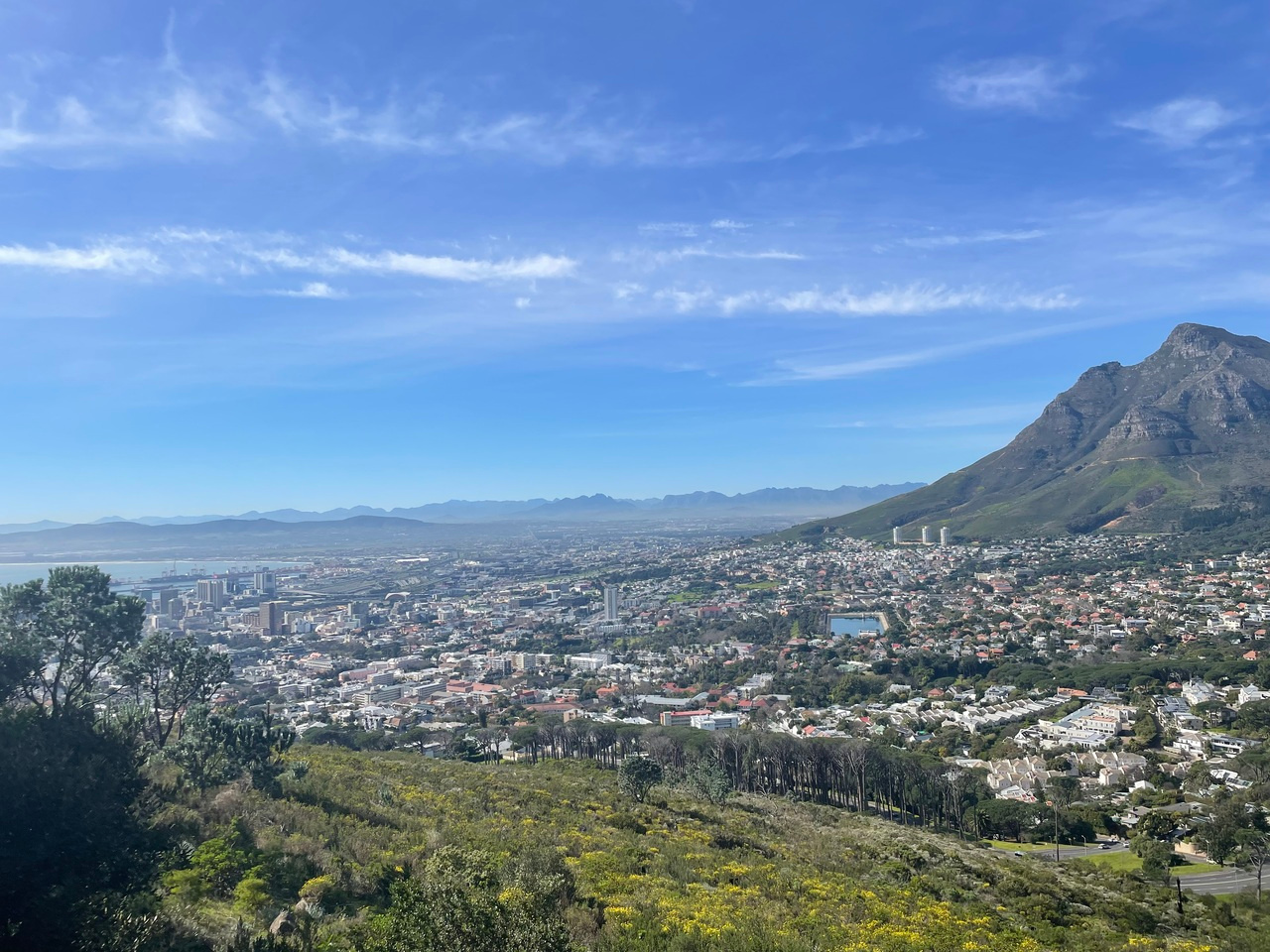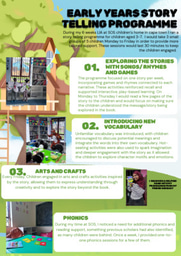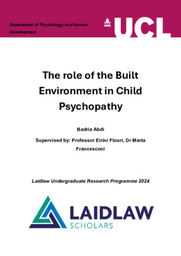LIA: International reflections

My international experience in Cape Town was extremely enriching. It allowed me to engage with people from a completely different cultural background and see both parallels and differences between language, food, and social customs.
The SOS Children's Village in Cape Town welcomed me kindly from the start. The ‘village’ itself was unique in that it was a gated community where we could both live and work and as a result, community life was central.
SOS village
The "SOS moms" who looked after each house were at the heart of the village, and occasionally cooked for us, sharing South African cuisine. This sense of collective care was completely different from what I had experienced in London, and it made me feel like a member of the community rather than a visitor.
Youness, a Laidlaw scholar, who completed his LIA at SOS the year before, provided invaluable support throughout our time there, and was back running his own programme, and he brought us scholars along with him. During his initial placement, he'd recognized an ongoing need and developed a project to address it. This time, he invited us to work alongside him on his initiative while we also managed our own sessions. He reminded us that we didn't have to overexert ourselves outside of our sessions and could relax indoors if we wanted. That blend of direction and independence greatly influenced my LIA experience, teaching me how to adjust to a new situation while also caring for my personal well-being.
Session A+B
When we first arrived in Cape Town, we had an 'exploration' week where we went sightseeing around Cape Town. We visited the beach, Bird World, Kirstenbosch Gardens, local malls, Table Mountain, and Lion's Head and many more exciting places, with each place offering its own glimpse into the beauty and vibrancy of the city
But the most memorable moments of exploration weren't at tourist sites, they happened in quieter, unexpected exchanges with the children. As a visible Muslim woman, I noticed many of the children were fascinated by my headscarf and asked questions about it. I was first apprehensive, but I quickly recognised their queries stemmed from a childish curiosity. By the end, one child had requested if she might keep one of my hijabs, and I gave happily obliged. That moment of cultural exchange was important because it reminded me of how international encounters allow for mutual learning.
One of the challenges I noticed was that many of the children struggled with literacy. During my limited time there, I was able to do some phonics sessions with a few children. I remember one boy in particular, usually very shy, who became so excited and confident after just a 30-minute session that he would beam and greet me whenever he saw me around the village. While this was incredibly rewarding, it also highlighted the lack of individualised support available to the children, and how children flourish when they receive personal attention.
Being in Cape Town also exposed me to societal disparities. Whilst, London has severe social class differences, they are generally more veiled. In Cape Town, the contrasts were starker and more obvious within short distances, gated neighbourhoods next to areas with significantly fewer resources. That visual contrast changed my perspective on inequality and how it is concentrated on local scales.
Overall, my overseas experience in Cape Town taught me the importance of community, cultural interchange, and personal support. It taught me how hard it can be to dream when possibilities and resources are scarce, but also how strong it is when someone believes in you. Attention and support are necessary even for the ability to imagine. Without it, it's simple to remain limited to your immediate surroundings and never consider the idea of thinking creatively. I was impressed by the children's resilience and their endless, wonderful dreams. Their perseverance served as a reminder to me that even in the most trying circumstances, dreams may blossom with even a tiny bit of encouragement.



Please sign in
If you are a registered user on Laidlaw Scholars Network, please sign in